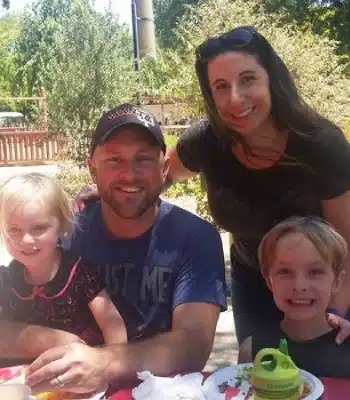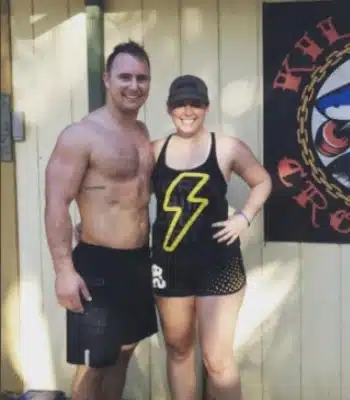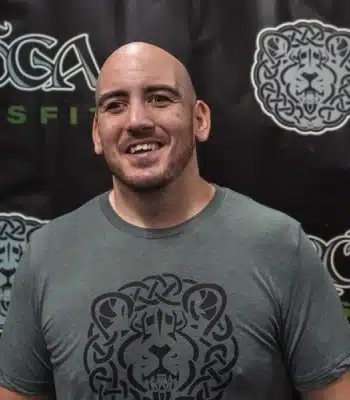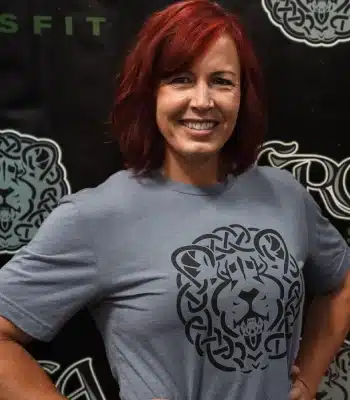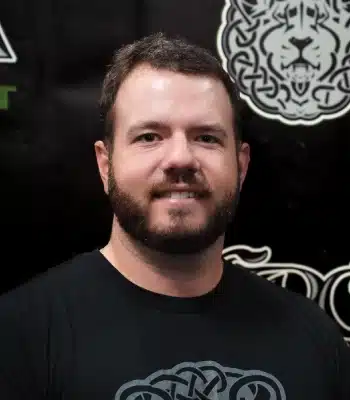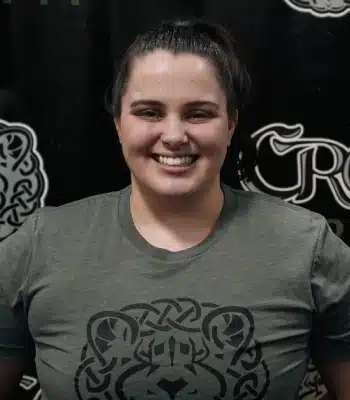We asked Aviv for a testimonial and he wrote us a short story. Enjoy! The first cut is the deepest: reflections on my 4 month 25 lb weight-loss journey with Croga Nutrition (powered by WAG)My recollection from the initial few weeks of the cut was an overwhelming sense of relief. I was stuck in this cycle of “oh I’m so hungry, oh shoot I ate too much I’m such a slob let me eat less, oh man I’m so hungry…”. My hunger was compounded by the fact that I was training at Croga almost every day. In fact, I gained a bunch of weight during my first year of CrossFit. And I wasn’t trying to. I was trying to lose weight! I kept inexorably gaining weight no matter what I ate or did. It was like a train wreck that kept going on. In retrospect, after having quantified my intake very meticulously, I realize I was eating way too much fat and not enough protein (even though I thought I was). It was the least-clean bulk in the history of weightlifting. Sure, I gained a bunch of muscle. But what good is a bunch of muscle if it’s covered by even more fat? CrossFit was making me stronger but it sure as heck wasn’t making me any leaner. That’s where WAG nutrition came to the rescue. I was inspired to join after seeing some of the gains that other members who were on WAG were making. Losing fat, getting leaner and stronger. Once I started the nutrition coaching, I felt a weight lift from my shoulders. The responsibility of losing weight was now on someone else. All I had to do was hit my macros. I figured either it worked, and I’d get lean, or it didn’t in which case I’d complain to my coach. The beginning was a little rough. Not going to lie. I quickly learned that all those tips that you read about for losing weight (eat lots of small meals, don’t drink your macros), well, I needed to employ all of them to stay satiated. And even then, there were rough days here and there when I miscalculated how hungry I’d be after a workout and ended up shaky and starved. My coach put it plainly: you’re not going to lose weight without ever being hungry. It’s unavoidable, but it can be minimized. Somehow that made me feel better. I learned never to leave the house without a snack. I started eating six times a day. I started planning my meals the night before. I had actually tried tracking my macros prior to WAG and I found it time-consuming and tedious. This time around I was proactively planning rather than retroactively logging, and it made all the difference. Planning my meals became like a game or an optimization problem: how can I eat the most on a fixed budget? Advance planning became a must for me. And, since I do most of the cooking in the house it also meant that I had to take everyone else’s needs into consideration. I started a weekly menu so that I could plan in advance what to prepare each day and have the ingredients ready rather than trying to frantically pull something together at 6 pm. My five-year-old saw me trying to put together a menu for the first week, looked at me, and then asked why don’t we just have the same thing for each day of the week and then you won’t have to make a new plan each week (duh)? We agreed that Mon would be Pizza, Tue Tacos, Wed Burgers and Broccoli, Thu Asian, and Fri Frittata. It’s held ever since. Obviously, sometimes we move things around but I love having that weekly plan. That way when I shop, I just have to worry about having the ingredients for those meals plus veggies and protein for myself. Oh yeah, and I had another kid right about in the middle of my cut. To make things more interesting, my wife was diagnosed with Gestational Diabetes in her second trimester and she was put on a special diet. This was initially pretty stressful for us, trying to manage two special diets until we realized that the low carb diet that was recommended to her wasn’t that different from what I was already eating. So I started making double portions of veggies and protein and she’d add some fat to it (avocado, sour cream). She was happy because she could keep her blood sugars down and she even lost a bit of weight in her last trimester which made her happy. Now I’m eating much more protein than I ever thought was possible for a vegetarian. I think it makes a huge difference for my recoveries. I bounce back from workouts so much more quickly now, whereas before I was pretty much in a constant state of DOMS. Overall, nutrition coaching has transformed my relationship with food. From some kind of weird dependence to one of complete control: I eat what I want when I want, and I don’t let anything get in the way. I’ve become notorious for ignoring free food and not joining team lunches. I’m shameless in my obstinance. They can keep that greasy Chinese food. I’ll keep my abs. What was it about the nutrition coaching that made it work so well for me? I don’t think that there was one single magic ingredient. Rather it was a combination of factors that increased my chances of success. A supportive community was one. Seeing people further down the same road that I had started on was encouraging. The other thing was my coach, Preston. He was crucial in providing encouragement and guidance as well as a sense of accountability. His answers to my questions at the weekly check-ins were always so well thought out and showed careful consideration. It made me feel good to know that there was someone tracking my progress carefully and making adjustments as needed. It was also someone I could share my progress with and who was wholeheartedly dedicated to my success. I lost a bunch of fat but I’m not done yet. I’ve decided to keep going with WAG and continue on to a longer-term coaching relationship with Preston. I want to drop the last vestiges of my former fat self. And then I’m going to try to bulk again. Hopefully, do it right this time. Get back to moving more weight again. It’ll be fun. I’m confident I can do it.




